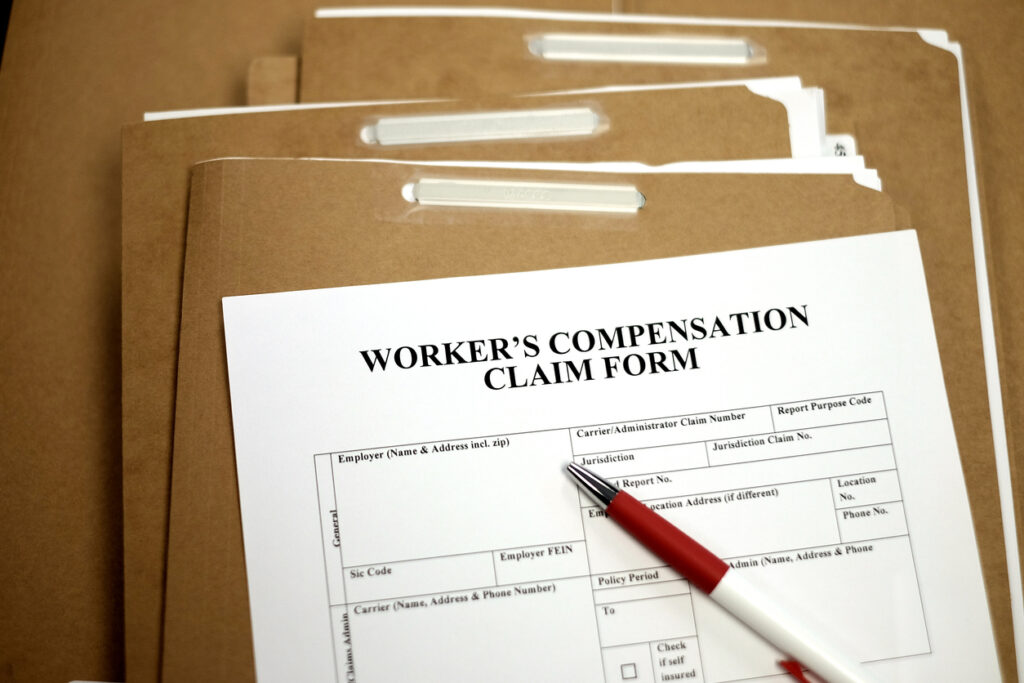In California, the statute of limitations for filing a workers’ compensation claim is generally one year from the date of injury or the date the employee reasonably should have known that their injury was job-related. Want to understand about the statute of limitations for filing a workers’ compensation claim in California? Keep reading.
- One-Year Time Limit: Under California Labor Code Section 5405, injured workers have one year from the date of injury to file a workers’ compensation claim. If the injury is not immediately apparent, the one-year time limit begins from the date the employee knew, or should have known, that their injury was a job-related injury.
- Notice Requirements: In addition to the one-year statute of limitations for filing a claim, an injured worker is usually required to provide notice of their workplace accident and injury to their employer within a timely manner. Generally, employees must notify their employer of a job injury within 30 days of the date of injury, or the date they knew or should have known that their injury was because of their job.
- Exceptions and Extensions: There are some exceptions and extensions to the one-year statute of limitations for filing a workers’ compensation claim. If an injured worker receives medical treatment or benefits related to their injury, the statute of limitations may be extended. Minors or individuals deemed mentally incompetent may have additional time to file workers comp claims.
- Continuous Traumas or Occupational Diseases: In cases of continuous traumas or occupational diseases, such as repetitive stress injuries, the statute of limitations may be more complex. The one-year time limit may begin from the date the injury first became apparent, or from the date the employee knew, or should have known, that their condition was work-related.
- Consultation with an Attorney: Given the complexities of the workers’ compensation statute and the importance of meeting deadlines, hurt workers should consult with an experienced workers’ compensation lawyer as soon as possible after sustaining a job injury. A workers’ comp lawyer can help ensure that the claim is filed within the appropriate timeframe and guide the injured worker to file a workers; compensation case, if necessary.
Workers Compensation Laws In California
Workers’ compensation laws in California provide benefits to employees who suffer job-related injuries or illnesses. Here’s an overview of workers’ compensation laws in California:
- Workers’ Compensation Insurance Company Coverage: Most employers in California are required to carry workers’ compensation insurance to provide benefits (like lost wages, medical care, and other benefits) to employees who become ill due to work-related activities. This includes both full-time and part-time employees, as well as certain independent contractors.
- Benefits: Workers’ compensation benefits in California may include:
- Medical care: Coverage for medical bills related to the treatment of job-related injuries and/or illnesses.
- Temporary disability benefits: Partial wage replacement for employees who are temporarily unable to work due to a work illnesses or injuries.
- Permanent disability benefits: Compensation for permanent disabilities resulting from work-related injuries or illnesses.
- Death benefits: Compensation for dependents of workers who die as a result of a work injuries or illness.
- Filing a Claim: Employees who suffer work injuries must notify their employer as soon as possible and seek medical attention if necessary. Employees must complete and submit a claim form to initiate the workers’ compensation benefits process.
- Investigation: Once a workers’ compensation claim is filed, the employer’s insurance carrier will typically investigate the issue. This may involve reviewing medical records, conducting interviews, and gathering other relevant information.
- Dispute Resolution: If there is a dispute regarding a workers’ compensation claim, such as the extent of an employee’s disability or the need to seek medical care, the dispute may be resolved through the workers’ compensation system.
- Legal Representation: An injured employee has the right to be represented by an attorney during the workers’ compensation process. The employment lawyers at Lawyers for Justice, P.C. can provide legal advice, help ensure that employees receive appropriate benefits, and represent employees in disputes with employers or insurance carriers. And they offer a free consultation for those who experience workplace injuries.
- Anti-Retaliation Protections: California law prohibits employers from retaliating against employees for filing workers’ compensation claims or exercising their rights under the workers’ compensation system.
Workers Comp Questions – FAQ
how long can a workers’ comp claim stay open? The statute of limitations for filing a workers’ compensation issue has a specific date: it is one year for most employees. If you do not file within that time, you may lose your employee rights to benefits.
how long do i have to sue for work-related injuries? Unless there are special circumstances, someone who is hurt on the job has one year to file or sue for maximum compensation against their employer for lost wages, cumulative trauma, strain injuries, severe injuries, or another work-related accident under California workers’ compensation.
how long does an employer have to file a workers’ comp claim? When there is a job site injury, an employer should be prompt in helping you move the process along.
how long can a workers comp claim stay open? If the accident occurred affected state or federal employees, an injured worker still has only one year to recoup workers’ compensation benefits.
how long do you have to report an injury at work? In short, the sooner an injury or illness is reported, the better.
how long does a workers comp case take? The process to file a claim is not long, but some workers’ compensation claims can take longer to be resolved, depending on the medical attention received, and other intricacies of each specific case.
what happens when you file a workers comp claim? If you have filed a claim form and if your employer doesn’t deny your claim within 90 days, your injury is presumed to be covered. Within one day of filing a claim form, your employer must authorize appropriate medical treatment.
how long can a workers’ comp claim stay open in california? There is typically a one year limit.
what is the statute of limitations for a work-related injury? In California, there is a a one year limit.
Last Updated on May 19, 2025



